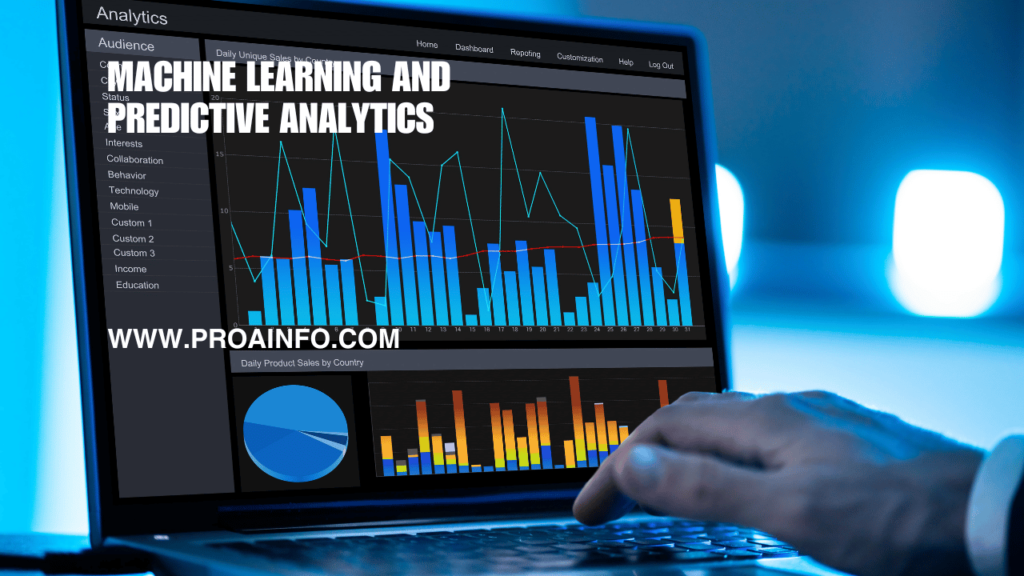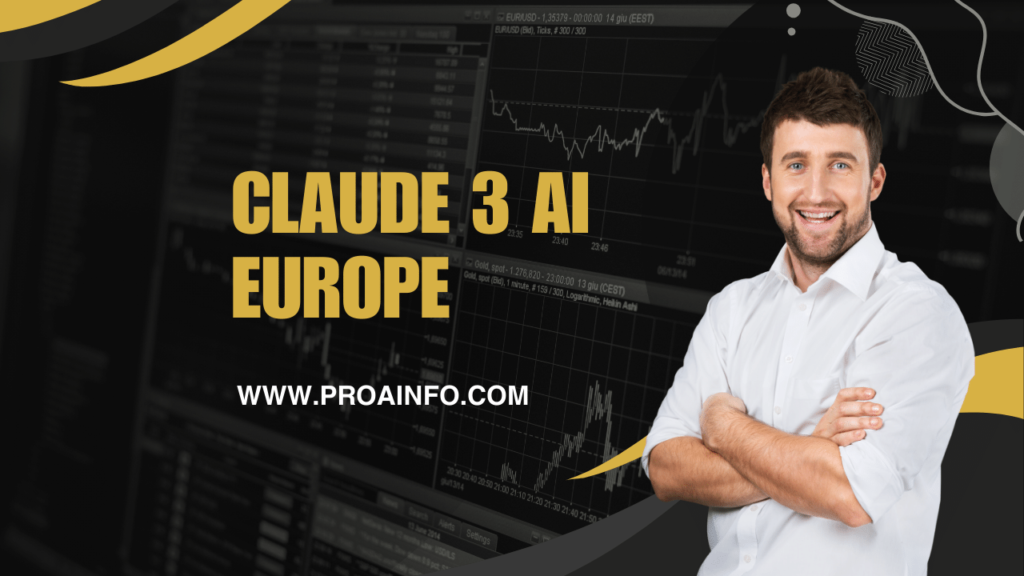Claude 3 AI Europe. The field of artificial intelligence (AI) has been rapidly evolving, and Europe finds itself at the forefront of this technological revolution.
Among the many AI innovations emerging from the continent, one stands out as a game-changer: Claude 3, a cutting-edge AI system developed by the European AI research consortium, AIconics. This article delves into the remarkable capabilities of Claude 3, its impact on various industries, and the ethical considerations surrounding its widespread adoption.
What is Claude 3?
Claude 3 is a multi-purpose AI system that leverages the latest advancements in natural language processing (NLP), machine learning, and deep neural networks. It is designed to understand and communicate in multiple languages, making it a valuable asset for businesses and organizations operating across Europe’s diverse linguistic landscape.
At its core, Claude 3 is a conversational AI assistant capable of engaging in human-like dialogue, answering queries, and providing insights and recommendations across a wide range of topics. However, its capabilities extend far beyond traditional virtual assistants. Claude 3 can analyze vast amounts of data, identify patterns and trends, and generate highly accurate forecasts and simulations, making it an invaluable tool for decision-making processes.
Key Features and Capabilities
1. Natural Language Processing
One of Claude 3’s standout features is its advanced natural language processing capabilities. It can comprehend and generate human-like text in multiple European languages, facilitating seamless communication and collaboration across borders.
This feature is particularly valuable for businesses operating in the European Union, where language barriers can often hinder productivity and efficiency.
2. Machine Learning and Predictive Analytics

Powered by cutting-edge machine learning algorithms, Claude 3 can analyze vast datasets and identify patterns and trends that would be nearly impossible for humans to discern.
This capability makes it an indispensable tool for industries such as finance, healthcare, and logistics, where predictive analytics can drive strategic decision-making and optimize operations.
3. Multimodal Integration
Claude 3 is not limited to text-based interactions. It can process and interpret various forms of data, including images, videos, and audio files, making it a versatile solution for industries that rely on multimedia content, such as media and entertainment, marketing, and e-commerce.
4. Customization and Integration
One of the key strengths of Claude 3 is its ability to be customized and integrated with existing systems and workflows. AIconics has developed a robust API (Application Programming Interface) that allows developers to integrate Claude 3’s capabilities into their applications, enabling seamless integration and enhancing overall productivity.
Applications and Use Cases
1. Healthcare and Biomedical Research

In the healthcare sector, Claude 3 is revolutionizing medical research and patient care. By analyzing vast amounts of medical data, including electronic health records, clinical trial data, and scientific literature, Claude 3 can identify potential drug targets, predict disease outbreaks, and assist in personalized treatment plans. Additionally, its natural language processing capabilities enable more effective communication between healthcare professionals and patients, improving overall patient experience and outcomes.
2. Finance and Banking
The finance and banking industries have long relied on data analysis and forecasting to drive investment decisions and risk management strategies.
With Claude 3, financial institutions can leverage its predictive analytics capabilities to identify market trends, optimize portfolio management, and mitigate risks more effectively. Furthermore, its natural language processing abilities enhance customer service by providing personalized financial advice and recommendations.
3. Logistics and Supply Chain Management
In the complex world of logistics and supply chain management, efficiency and optimization are key to success.
Claude 3’s ability to analyze real-time data streams, such as shipping routes, weather patterns, and inventory levels, enables companies to optimize their supply chains, reduce costs, and minimize delays. Additionally, its natural language processing capabilities facilitate seamless communication between suppliers, manufacturers, and customers, ensuring smooth operations across the entire supply chain.
4. Education and Learning
Claude 3 has the potential to revolutionize the education sector by providing personalized learning experiences and adaptive curricula.
By analyzing student performance data and learning styles, Claude 3 can tailor educational content and delivery methods to suit individual needs. Furthermore, its natural language processing capabilities enable more engaging and interactive learning experiences, fostering better understanding and retention of knowledge.
5. Media and Entertainment

The media and entertainment industry is constantly seeking innovative ways to engage audiences and deliver personalized content.
With Claude 3’s multimodal integration capabilities, companies can analyze consumer preferences, trends, and sentiment data to create tailored content recommendations and targeted marketing campaigns. Additionally, its natural language processing abilities can enhance content creation processes, such as scriptwriting, story development, and dialogue generation.
Ethical Considerations and Challenges
While Claude 3 offers numerous benefits and opportunities, its widespread adoption also raises important ethical considerations and challenges that must be addressed.
1. Data Privacy and Security
As Claude 3 relies on vast amounts of data for training and operation, concerns around data privacy and security are paramount.
AIconics has implemented robust security measures and adheres to strict data protection regulations, such as the General Data Protection Regulation (GDPR) in Europe. However, as the system becomes more widely adopted, ensuring data privacy and preventing misuse or unauthorized access will be an ongoing challenge.
2. Algorithmic Bias and Fairness
Like any AI system, Claude 3 is susceptible to algorithmic bias, which can perpetuate societal prejudices and inequalities.
To mitigate this risk, AIconics has implemented rigorous testing and auditing processes to identify and address potential biases in the system’s decision-making processes. However, maintaining algorithmic fairness and accountability will require ongoing vigilance and transparency from the developers and users of Claude 3.
3. Job Displacement and Economic Impact

The introduction of advanced AI systems like Claude 3 has raised concerns about potential job displacement and economic disruption.
While AI is expected to create new job opportunities in fields such as AI development, data analysis, and system integration, there is a risk that certain industries and job roles may be significantly impacted. Proactive measures, such as workforce retraining and education initiatives, will be crucial to mitigating the negative impacts and ensuring a smooth transition to an AI-driven economy.
4. Ethical Decision-Making and Accountability
As Claude 3 becomes increasingly involved in decision-making processes across various industries, questions arise regarding the ethical implications of its decisions and the accountability of those decisions.
Clear guidelines and governance frameworks must be established to ensure that Claude 3’s decisions are transparent, explainable, and align with ethical principles and societal values.
The Future of Claude 3 and AI in Europe
The development and adoption of Claude 3 represent a significant milestone in Europe’s AI journey, but it is merely the beginning of a larger technological revolution. As AI continues to advance, we can expect to see more sophisticated and specialized AI systems emerging, each tailored to specific industries and use cases.
One potential future development is the integration of Claude 3 with other cutting-edge technologies, such as the Internet of Things (IoT), robotics, and augmented/virtual reality (AR/VR). This convergence of technologies could lead to innovative applications in fields like smart cities, advanced manufacturing, and immersive entertainment experiences.
Additionally, the success of Claude 3 is likely to spur further investment and research in AI across Europe, fostering a thriving ecosystem of startups, research institutions, and collaborative initiatives. This could position Europe as a global leader in AI development and deployment, driving economic growth and technological innovation.
However, as AI systems become more advanced and ubiquitous, addressing the ethical and societal implications of their adoption will be crucial. Ongoing efforts to establish robust governance frameworks, promote AI literacy, and ensure responsible AI development will be essential in shaping a future where AI and humans coexist harmoniously.
Conclusion
Claude 3 represents a significant leap forward in AI capabilities and marks a pivotal moment in Europe’s technological journey. With its natural language processing prowess, predictive analytics capabilities, and multimodal integration, Claude 3 has the potential to revolutionize various industries and drive innovation across the continent.
As Europe continues to embrace AI and its transformative potential, it is imperative to strike a balance between harnessing the power of AI and addressing the ethical and societal challenges that accompany its adoption. By fostering a collaborative and responsible approach to AI development, Europe can pave the way for a future where advanced AI systems like Claude 3 enhance human capabilities, drive economic growth, and contribute to a more sustainable and equitable society.
READ MORE:How To Bypass Turnitin AI Detection? Simple Tricks
FAQs
Q1: What is Claude 3?
A1: Claude 3 is a cutting-edge artificial intelligence system developed by the European AI research consortium, AIconics. It is a multi-purpose AI system that leverages advanced natural language processing, machine learning, and deep neural networks to understand and communicate in multiple languages, analyze data, and provide insights and recommendations across various domains.
Q3: What industries can benefit from Claude 3?
A3: Claude 3 has potential applications across various industries, including healthcare and biomedical research, finance and banking, logistics and supply chain management, education and learning, and media and entertainment.
Q4: How does Claude 3 handle data privacy and security concerns?
A4: AIconics has implemented robust security measures and adheres to strict data protection regulations like the GDPR to ensure data privacy and security. However, as Claude 3 becomes more widely adopted, maintaining data privacy and preventing misuse or unauthorized access will be an ongoing challenge.
Q5: Is Claude 3 susceptible to algorithmic bias?
A5: Like any AI system, Claude 3 is susceptible to algorithmic bias, which can perpetuate societal prejudices and inequalities. AIconics has implemented rigorous testing and auditing processes to identify and address potential biases, but maintaining algorithmic fairness and accountability will require ongoing vigilance and transparency.
Q6: What are the potential ethical concerns surrounding the adoption of Claude 3?
A6: Some of the key ethical concerns include job displacement and economic impact, ethical decision-making and accountability, data privacy and security, and algorithmic bias and fairness.
Q7: How does AIconics plan to address the ethical challenges associated with Claude 3?
A7: AIconics is committed to promoting responsible AI development and deployment. They are working towards establishing clear guidelines and governance frameworks to ensure transparency, accountability, and alignment with ethical principles and societal values.
Q8: What is the future of Claude 3 and AI in Europe?
A8: The success of Claude 3 is expected to spur further investment and research in AI across Europe, fostering a thriving ecosystem of startups, research institutions, and collaborative initiatives. Additionally, the integration of Claude 3 with other emerging technologies, such as IoT, robotics, and AR/VR, could lead to innovative applications in various fields.
Q9: How can businesses and organizations adopt and integrate Claude 3 into their operations?
A9: AIconics has developed a robust API that allows developers to integrate Claude 3’s capabilities into their applications, enabling seamless integration and enhancing overall productivity. Businesses and organizations can work with AIconics or their partners to explore customized solutions and implementation strategies.
Q10: What steps is Europe taking to promote responsible AI development and adoption?
A10: Efforts are underway across Europe to establish robust governance frameworks, promote AI literacy, and ensure responsible AI development. This includes initiatives like the European Commission’s Coordinated Plan on Artificial Intelligence and the AI Ethics Guidelines, which aim to foster a human-centric and trustworthy approach to AI.








2 thoughts on “Claude 3 AI Europe”